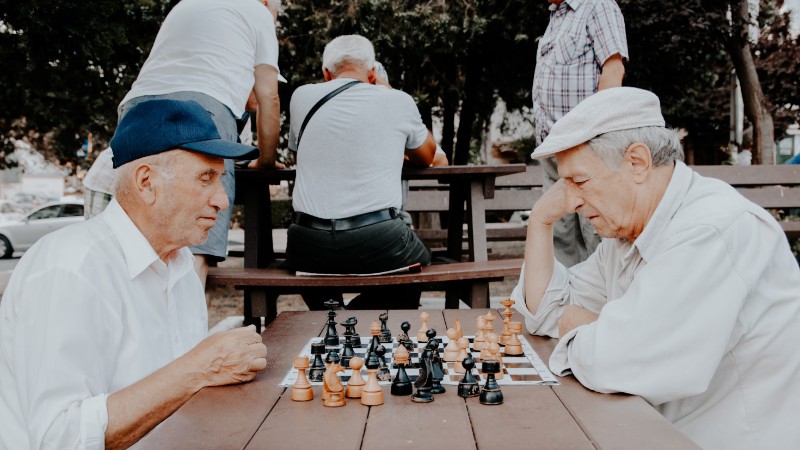As we age, significant life changes, such as losing a spouse or facing declining health, can lead to social isolation, resulting in loneliness and depression that affect mental and physical well-being. Regular social engagement is vital for older adults, enhancing emotional and cognitive health. Addressing social isolation is crucial for seniors’ overall health. Here are six strategies to help combat loneliness and cognitive decline, including Alzheimer’s and other forms of dementia.
The health impact of senior isolation
Social isolation significantly impacts seniors’ health, increasing the risk of mental health issues like depression and anxiety, and even contributing to cognitive decline, such as dementia. The U.S. Department of Health and Human Services reports that poor social connections raise the risk of heart disease by 29%, stroke by 32%, and dementia by 50%.
Seniors facing isolation also have a 60% higher risk of early mortality, underscoring the need for effective strategies to promote social engagement. Beyond the emotional toll, loneliness has been linked to a variety of health issues:
Mental health struggles: Isolation often leads to depression and anxiety, as seniors miss out on the emotional support that social interactions provide. A lack of engagement can also increase feelings of hopelessness and reduce the sense of purpose, leading to a decline in mental well-being.
Physical health decline: Loneliness can worsen physical health, raising the risks of hypertension, heart disease, and weakened immune responses. The stress from social isolation leads to inflammation, increasing seniors’ vulnerability to illness. However, staying socially active can significantly lower these risks.
Cognitive decline: Regular social interaction stimulates the brain, helping to preserve cognitive functions. Conversely, isolation accelerates cognitive decline and heightens the risk of dementia and other cognitive disorders, including Alzheimer’s.
Decreased physical activity: Socially isolated seniors are less inclined to participate in physical activities, resulting in muscle weakness and deconditioning. Social connections encourage movement through exercise classes and outings, vital for maintaining physical health.
Effective strategies to combat social isolation
Combating social isolation in seniors requires a mix of community involvement, technological solutions, and practical support systems. Here are several strategies to foster connection and reduce loneliness:
Join social clubs: Joining social clubs is an effective way for seniors to combat loneliness. They can participate in local clubs or online communities based on their interests. Regular gatherings offer chances to connect with others and build friendships, helping to establish a structured routine.
Establish a daily social routine: Incorporating daily social activities can foster better habits. Simple interactions, like chatting with a neighbor, joining group activities, or calling a friend, help create a routine that reduces loneliness. This engagement also keeps older adults mentally and emotionally active.
Care for a pet: Studies indicate that pets can greatly enhance the mental and physical well-being of older adults. The companionship they offer provides emotional support and alleviates loneliness. Many seniors find that caring for a pet adds joy and structure to their daily lives.
Volunteer and give back: Volunteering allows older adults to engage with their communities and build connections. Local organizations like community centers, faith groups, and animal shelters offer various volunteer opportunities. Through giving back, seniors can cultivate new relationships and find a sense of purpose.
Talk with your primary care provider: Older adults facing social isolation or loneliness should discuss their feelings with their healthcare providers. Physicians can suggest community resources, support groups, and activities that promote social engagement and enhance overall health. Addressing these issues with a doctor can lead to improved emotional and physical well-being.
Explore sources of joy: Engaging in joyful activities is vital for combating loneliness in older adults. Hobbies, outdoor time, and pet care can boost social connections and emotional well-being. The National Poll on Healthy Aging revealed that many seniors found happiness in physical activities and hobbies during the pandemic.
Forging stronger connections
Seniors deserve to live with dignity and happiness in meaningful relationships. Tackling senior isolation requires community compassion and awareness. By promoting social engagement, utilizing technology, and ensuring accessible transportation, we can create a supportive and inclusive society.
These efforts can enhance the mental and physical health of seniors, helping them lead connected, fulfilling lives while addressing issues like Alzheimer’s and cognitive decline.















